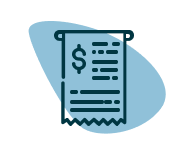Short-Term Business Loans
Fast financing to cover short-term needs like cash flow management, business expansion, or emergency recovery.
Short-Term Business Loans at a Glance
Loan TermUp to 24 months
Interest RatesStarting at ~10%
Funding SpeedAs fast as 1 day
Max AmountUp to $10 million
Pros and Cons of a Short-Term Business Loan
Like any business financial decision, a short-term small business loan
Pros
✔️ More flexible qualification requirements.
✔️ Application process may be more streamlined.
✔️ Fast to fund.
✔️ Various uses.
Cons
✖️ Higher interest rates.
✖️ Frequent payments.
How Short-Term Business Loans Work
A short-term business loan is frequently structured as a straightforward business term loan.
You receive a set amount of capital from a lender upfront and agree to pay it back, with the lender’s fees and interest, over a predetermined amount of time. You can also find a short-term business loan in the form of a business line of credit, invoice financing, and merchant cash advance. Short-term loans are most often available from alternative lenders but can also be issued by banks, credit unions SBA lenders
On the whole, short-term business loans have terms of less than two years. You’ll generally be required to make payments on your loan on a daily or weekly basis, whereas longer-term loans will have a monthly payment schedule. The maximum amount of a short-term loan can reach as high as $10 million, but in most cases, short-term loans with limits over $250,000 will be structured as invoice financing or merchant cash advances (more on those options below).
Interest rates on fast short-term business loans vary widely by lender and based on your business’s qualifications. You’ll often find that they start around 10% and can reach as high as 99% (or well into the triple digits if you’re looking at a merchant cash advance). Of course, the better your business’s qualifications, the better rates you’ll be able to receive on a short-term loan.
Other Types of Short-Term Business Loans
| Type | Best For | How It Works |
|---|---|---|
| Quick access to funds that you can tap as you need. | A business line of credit works, in many ways, like a business credit card. You get approved for a specific amount of capital that you can draw from at any time and only pay interest on the funds you draw. It’s one of the most flexible forms of financing. | |
| B2B and service businesses with invoice-based cash flow issues. | With invoice financing, you receive an advance of capital that’s secured by your business’s unpaid invoices. A lender will generally offer up to 90% of the value of the invoices, with the remaining 10% (minus the lender’s fees) paid out when your customers pay their invoices. | |
| Businesses that don’t qualify for any other short-term loan. | For a merchant cash advance (MCA), a company fronts you a set amount of capital in exchange for a percentage of your future debit or credit card sales. In this case, you repay the amount you’ve borrowed on a daily or weekly basis with those sales, plus fees. It’s an enticing option because repayment is based on your daily revenue—sales are up, pay more, and when they’re down, pay less. But beware! MCAs are by far the most expensive form of financing—with APRs that can reach over 100%. |
When to Consider a Short-Term Business Loan
Many small business owners will turn to a short-term business loan for urgent or time-sensitive financial situations. This is because the lenders offering short-term loans typically have online applications requiring less paperwork and therefore faster review, approval, and funding.
You might consider a short-term business loan to:
- Help fill cash flow gaps.
- Purchase inventory.
- Cover payroll.
- Pay taxes.
- Expand your business.
- Cover emergencies.
- Refinance other short-term debt.
How to Get a Short-Term Business Loan
If you think a short-term loan is suitable for your business, your first step will be to explore and compare lenders. Once you’ve narrowed your search to one or even a few lenders that you think may be a good fit, you’ll need to determine whether your business meets the qualification requirements. After you’ve confirmed that you qualify, you’ll complete a short-term business loan application.
Qualifications for a Short-Term Loan
*Based on past Fundera customers


Qualifying for a Short-Term Business Loan
The specific qualifications you’ll need to meet will vary based on the lender you’re working with. For example, whereas SBA and bank loans often require two or more years in business, many online lenders will work with startups, including those that have less than a year in business.
If you have a credit score of 600 or higher, at least one year in business, and an annual revenue of $100,000 or more, you should be able to qualify for a short-term business loan. It’s also important to remember that your business’s qualifications will impact your interest rates—the better your qualifications, the lower interest rates you’ll be able to receive.
Applying for a Short-Term Business Loan
Once you’ve determined that you meet the qualification requirements, you’re ready to apply for a small business loan
- Basic personal and business information, including an ID, business check, proof of business ownership, etc.
- Personal and business bank statements.
- Business financial statements.
- Personal and business tax returns.
- Credit score.
In addition, many short-term lenders will require that you sign a personal guarantee default on the loan collateral blanket lien
Overall, most short-term small business loans can fund in one to two days. But take your time with the paperwork! Before you agree to any offer, you’ll want to ensure that you understand all the terms, rates, fees and conditions, and invest the time to compare your options to ensure you get the best deal for your business.
Fundera Can Help
We’re here to take some of the work of finding a small business loan off your plate.
You can answer these few questions—with no impact to your credit score and free of obligation—to see which short-term loans you qualify for. One of our trained sales associates will personally advise you through the entire loan process, from comparing options to signing your agreement.
Let’s get you funded!
How much do you need?
No cost to you
Your credit score won't be impacted
Compare multiple lenders with one application